Refinancing Your Home? Here Are Some Tips
Ok, you may be ready to look at the potential financial advantages of refinancing your home at a lower interest rate? But before you go ahead with your plan, take a look at a few simple but tips that could help you.
Determine Your Goals
While mortgage refinance may make sense when you are getting a more attractive interest rate or you need to bring down your monthly payments, you could have other reasons to do it. You may be looking to get some money using the equity on your home to pay for necessary home improvements or to clear a costly debt. As a first step, be clear in your mind about your motivation to refinance your home and then begin the process.
Evaluate Your Options
A number of refinance loan options may be available to you. You should have a fair understanding of all these options so that you can determine the right one to fulfill your unique refinance needs.
Cash-Out Refinance: Under this option, you can get a new home loan while paying off the existing one. In addition, you utilize your home equity as collateral to receive some cash-back. You will effectively be left with a single mortgage.
Home Equity Loan: In case of a HELOC (home equity line of credit) or a home equity loan, rather than refinance your existing loan, you will obtain an additional loan utilizing the equity on your home. This is like a second mortgage loan.
Streamline Refinance: You could be eligible for this option if you have an FHA or VA loan or another government-sponsored mortgage. Compared to conventional financing, this option is faster and involves lesser documentation.
Look at Your Credit
To begin with, you should review your credit report carefully to ensure that it contains no mistakes. You can obtain a free annual copy of this report online to check every item in it. If you find any aberrations in it that will adversely affect your credit for no fault of yours, be prepared to dispute them with one of the three leading credit bureaus.
Your credit score is the most important number that may impact the interest rate for your refinance loan. Not just that, it could also influence your closing costs. With a higher credit score, lenders could offer you lower rates and beneficial loan terms. You might be able to enhance your credit score by reducing your credit card debt. Reducing your credit utilization ratio might be helpful (i.e., you can try to lower your credit card balances as much as possible compared to their maximum credit limit).
Assess the Lender’s Offer
Although it is tempting to refinance your mortgage with your existing lender because it appears to be the path of least resistance, it may not always be the ideal option for you. You should look for a lender with impeccable credentials that is willing to offer you the best value and attractive loan terms.
You will receive a loan estimate from the lender prior to your home refinancing process. This estimate will clarify your interest rate, closing costs and the fees charged by the lender for their services. Consider their offer judiciously and then make your final decision.
Be Wary of Cheap Offers
If the offer from a lender sounds too good to be true, it probably is. Sometimes a lender may claim to offer you home refinance at ‘zero’ cost. Do not be gullible enough to get enticed by these types of offers. There is no free lunch in the real world, and it is just that the lender may have structured their offer in a manner which makes you think you are getting refinance at no cost. The lender in this case is probably compensating its own charges by offering a higher interest rate.
Consider a 15-Year Mortgage or Fixed-Rate Loan
If your financial situation lets you pay off your loan early, you can own your home much faster and at a lower rate of interest with a 15-year loan. Refinance rates for a 15-year loan would be significantly lower than the usual 30-year loan. You could save thousands of dollars over the life of your loan in interest costs. But consider this option only if you anticipate a stable financial future and have the ability to make a larger monthly payment.
If you are seeking more predictability in terms of your long-term finances, you may want to refinance your existing adjustable-rate mortgage (ARM) into a fixed-rate mortgage. When the prevailing market interest rates are already low, they could go up in the future. So, an ARM could be a losing proposition over time if the rates increase.
With a fixed-rate mortgage refinance you can eliminate uncertainly and secure a low interest for the entire loan term. Remember that mortgage refinance is a useful tool in certain circumstances, but the key is to apply it skillfully after evaluating all the pros and cons.
Prime Choice Funding is here for you. If you are planning to purchase a new home or refinance your existing home, we can help with your homeownership goals, call us at (877) 787-7463 or contact us here.



